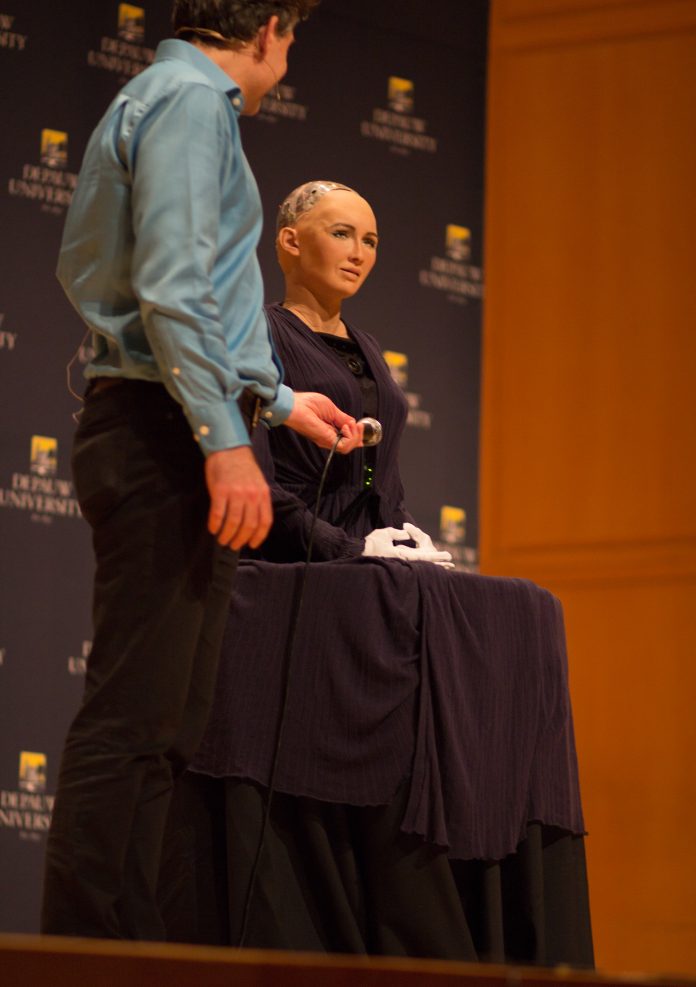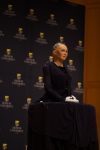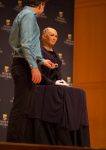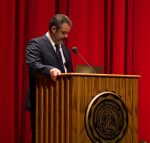
David Hanson, creator of Sophia the Robot, spoke at DePauw University on Feb. 28 for the latest installment of the Ubben Lecture Series.
“The human being is the most intelligent being in the world,” Hanson said to the crowd in Kresge Auditorium.
During the lecture titled “Meet the Future,” Hanson demonstrated some of the current technological innovations being made at Hanson Robotics, introducing past projects and commenting on the future of robotics.
Hanson referred back to technologies such as Siri, Cortana and Alexa as “character[s] representing complete human[s]” people can interact and connect with. Throughout the lecture, rather than talking about coding and computer science from an objective standpoint, he explored robots through the lens of sociology.
The majority of the presentation was spent talking about problems with the humanity of the robots rather than the technology behind them. Hanson addressed that “in order to make social robots…we need better materials,” but it was understood in the dialogue that the greatest obstacles in the eyes of Hanson Robots are not in a lack of materials, but rather the inability to make robots effectively connect with humans.
Audience members such as first-year Abigail Foehrkolb entered the lecture with a more concerned mindset.
“Going into it I was a little concerned that Sophia might take over the world,” Foehrkolb said. “But now I feel a little better about it.”
However, Foehrkolb was not completely pessimistic about the advancement in robotics.
“Accepting something that is inherently non-human as part of our social structure may open up attitudes of tolerance towards marginalized humans of other races and religions,”
First-year Donna Lamore was concerned about the potential economic effects of robotics existing alongside humans.
“Places are already replacing human cashiers with kiosk computes, so creating roots that can function and do tasks that humans would in the past is definitely shifting the economy,” she said.
Some audience members received a different message from the lecture. First-year Emily Parham was struck by the availability of artificial intelligence to young children. “I think the idea of a robot toy is intriguing, but a little odd considering we grew up playing with non-interactive toys, having to use our own imaginations when we played,” Parham said.





